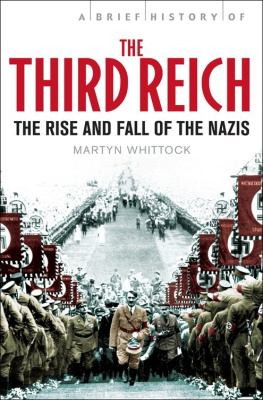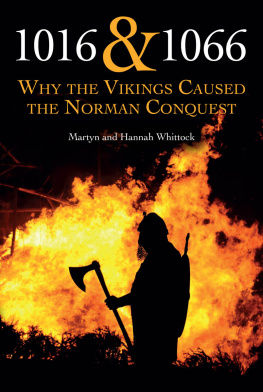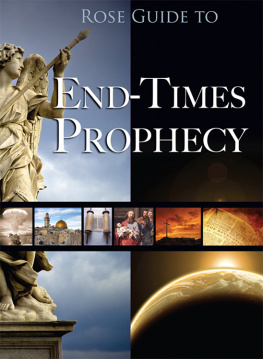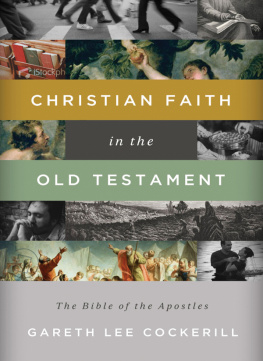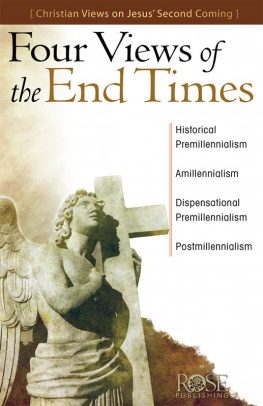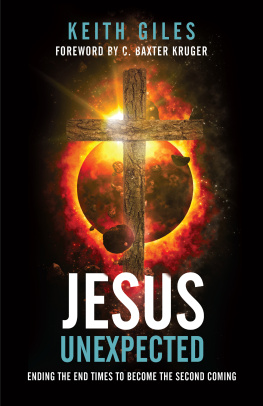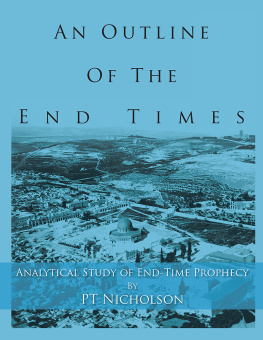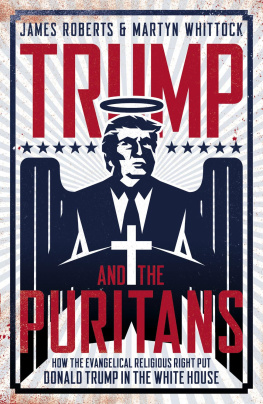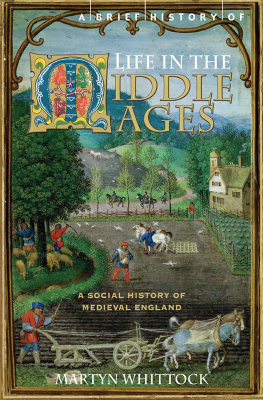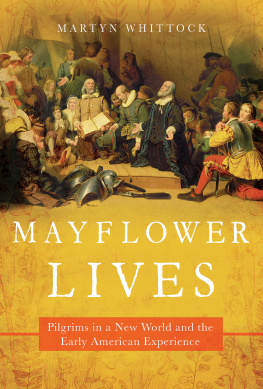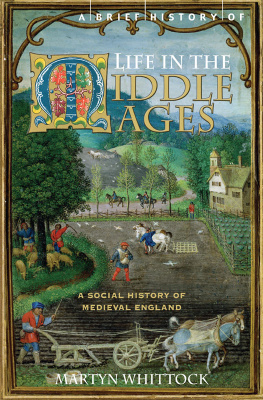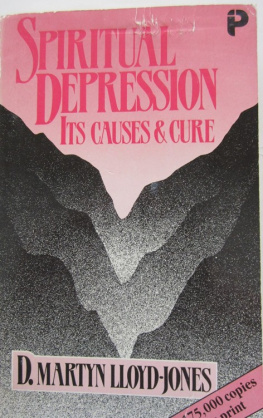Th e End Times, Again?
2000 Years of the Use & Misuse of Biblical Prophecy
Martyn Whittock
The End Times, Again?
2000 Years of the Use & Misuse of Biblical Prophecy
Copyright 2021 Martyn Whittock. All rights reserved. Except for brief quotations in critical publications or reviews, no part of this book may be reproduced in any manner without prior written permission from the publisher. Write: Permissions, Wipf and Stock Publishers, W. th Ave., Suite , Eugene, OR 97401 .
Cascade Books
An Imprint of Wipf and Stock Publishers
W. th Ave., Suite
Eugene, OR 97401
www.wipfandstock.com
paperback isbn: 978-1-7252-5844-0
hardcover isbn: 978-1-7252-5843-3
ebook isbn: 978-1-7252-5845-7
Cataloguing-in-Publication data:
Names: Whittock, Martyn, author.
Title: The end times, again? : 2000 years of the use & misuse of biblical prophecy / by Martyn Whittock.
Description: Eugene, OR: Cascade Books, 2021 | Includes bibliographical references.
Identifiers: isbn 978-1-7252-5844-0 ( paperback ) | isbn 978-1-7252-5843-3 ( hardcover ) | isbn 978-1-7252-5845-7 ( ebook )
Subjects: LCSH: End of the worldBiblical teaching. | EschatologyHistory of doctrines. | Millennium (Eschatology)History of doctrines. | BiblePropheciesEnd of the world. | BiblePropheciesSecond Advent.
Classification: bt819.5 w45 2021 (print) | lcc bt819.5 (ebook)
10/08/21
In Whittocks excellent volume, we have a book to savor.... Are we living in the end times? Has there ever been an age without wars and the rumors of wars, as the Gospels warn? Whittocks first-class study helps us to reengage with some of those central questions and concerns that are common to all faiths: What time is it? Where are we going? And are we nearly there?
Martyn Percy , Dean of Christ Church, Oxford
This is a nicely written, very readable, and thoroughgoing review of the centrality of end-times thinking within the history of Christian thought from the Hebrew scriptures to the present. The importance of Whittocks book lies in his demonstration that eschatology is not the sole preserve of the modern political and religious right but is, and has always been, compatible with many different religious, social, economic, and political agendas.
Philip Almond , Professor emeritus, The University of Queensland, and author of The Antichrist: A New Biography
Whittock writes a highly accessible and abundantly helpful account of how Christian writers through the ages have interpreted apocalyptic scriptures. Such readings have often, but not always, led to culturally and politically divisive movements. Whittock, however, offers a hopeful vision, reminding us that Christians can remain devoted to the Scriptures and still embrace the world and its challenges.
Glenn W. Shuck , author of Marks of the Beast: The Left Behind Novels and the Struggle for Evangelical Identity
The End Times, Again? is truly a book for our time. It is a wonderfully well-written survey of a vast sweep of Western history and the ways in which interpretations of biblical prophecy have influenced culture, politics, religion, and even armed conflicts.... The book is particularly noteworthy in that it includes our post-/ world, Trumps MAGA movement, and the profound ways in which recent ways of recasting prophecy belief are shaping our society.
James D. Tabor , Professor of Ancient Judaism and Early Christianity, The University of North Carolina at Charlotte
To John Worth, Heather Waldsax, and John Waldsax.
People of deep Christian faith.
Thank you for your friendship over many years.
Acknowledgments
I am grateful to a number of people who have assisted me in the writing of this book. Allan Coutts, Heather Waldsax, and David Bowater offered helpful insights regarding a number of areas of the text. Conversations regarding faith, theology, and history are a frequent part of discussions with my family. I thank them for their support and for always being willing to let me discuss my ideas with them. I also wish to thank my agent, Robert Dudley, for his friendship, advice, and encouragement over many years, and the team at Cascade Books (an imprint of Wipf and Stock) for their support.
The authorial views, interpretations, and assessments within this book are my own. All errors, of course, are also my own.
Setting the Scene
I n June 2016 , as a preacher and church leader, I organized a meeting, under the banner of the local council of churches in a West Country town in the United Kingdom, to discuss issues relating to the forthcoming EU Referendum. The meeting was intended to provide an opportunity for airing Christian views on the subject. It was very well attended and drew in participants from across the wide denominational spectrum of churches.
The evening was lively. Many of my friends (regardless of whether they were Leave or Remain in the context of the EU Referendum) expressed astonishment afterwards at the way the discussion developed. They had expected the topics to include debates over things like: sovereignty and parliamentary accountability; jobs and economic prosperity; continent-wide cooperation in order to meet global challenges; peace and security in Europe.
What they got was: whether the EU parliament building in Strasburg was modelled on the Tower of Babel; the accusation that the statue of Europa and the Bull in the European district of Brussels reveals the pagan origins of the EU; the allegation that the seat is kept empty in the European Parliament chamber in both Brussels and Strasbourg (it isnt); discussion over whether the EU represents the final political structure arising from the four beasts/kingdoms prophesied in Daniel, whether it was a political tool of Antichrist in advance of the second coming of Christ.
My friends were astonished at this. I wasnt. That was because, for me, it was a return to what had once been familiar home ground. During the previous month I had contributed a guest blog for Premier Christianity online . It had been entitled: I Believe in Prophecy. But the EU Is Not Babylon the Great. During that month (it went live on May 2016 ) it had become, from my calculations, one of the most visited blogs on this website. It can still be read online but, unfortunately, the huge string of comments and conversations under it can no longer be accessed. That is a pity because they would have provided interesting source material for future students of theology and the sociology of religion. Like the meeting I organized later, in June of that year, the online discussion got lively. In fact, it got very lively indeed!
However, when it comes to end-time speculation I have a past, as they say. I was born in 1958 and, consequently, I was a child of the seventies, as these were my teenage years. While the swinging sixties may have been the decade for other young people to push the boundaries from fashion to pop music (and a lot in between), the seventies were a great decade to be a young millenarian. Millenarianism refers to the belief that the second coming of Christ will establish a literal kingdom on earth, leading to a millennium of peace, prior to the final judgement. There are different variations of this concept, as there are to all aspects of end-times belief.
Back to the future
Like many around me in the 1970 s, I looked back to the ancient biblical prophecies in an attempt to predict the future. I grew up in an evangelical Methodist household that had friendly connections with local members of the Church of England, Baptists, and (especially) Elim Pentecostals. I counted members of all these churches among my friends. But for all our differences in churchmanship (which was largely irrelevant to us) one thing that united many of us was our fascination with the second coming of Christ. At that time, over forty years ago, it influenced our whole approach to the news. For example, a friend of a friend thought that Henry Kissinger might be the Antichrist. I was never entirely sure why this identification was made but seem to recall it was in some way connected to a set of Bible verses,


